Urgent call for national sports concussion strategy to protect brains
KIDS who do not recover quickly from concussion are at risk of developing serious mental health problems. The news comes as a sports law expert calls for a national regulatory concussion body.
Illness
Don't miss out on the headlines from Illness. Followed categories will be added to My News.
EXCLUSIVE: Kids who do not recover quickly from concussion are at risk of developing serious mental health problems including anxiety and depression.
A landmark study by the Murdoch Children’s Research Institute suggests psychologists as well as physiotherapists should be engaged to treat children who are taking a long time to recover from a sports-related or other concussion, as an early intervention against the mental health problems which may otherwise follow.
Murdoch paediatric neuropsychologist Professor Vicki Anderson said a longitudinal study of 300 badly concussed children had just wrapped-up, and a pilot program was now underway using a two-pronged approach treating both physical and mental illness post-concussion.
The news comes as a sports law expert calls for a national regulatory body to tackle concussion across all Australian sports, at all levels, and as evidence builds of links between concussion, depression, dementia and other serious, degenerative neurological conditions.
Bond University’s Assistant Professor Annette Greenhow said a national concussion strategy aimed at minimising brain injuries was urgently needed as growing numbers of females signed up to play contact sports.
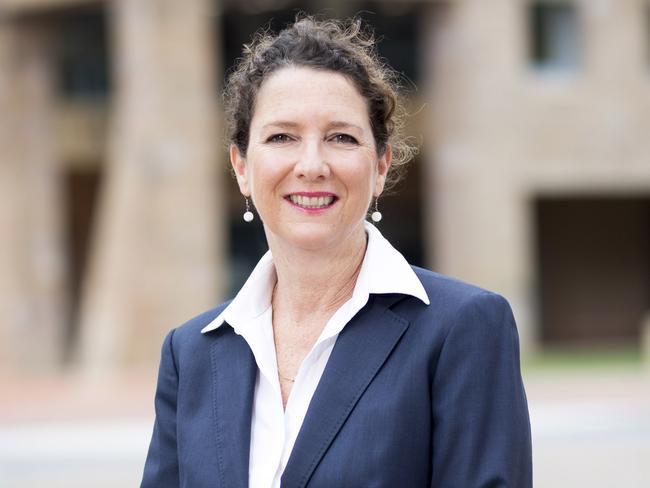
She said concussion had emerged as a major public health issue and the Federal Government needed to step in and take a lead role in protecting sportspeople of all ages.
Under the model state governments, sporting codes and medical and other experts would work with Sports Australia to develop and oversee a national concussion framework which produced consistent assessment and management protocols, and guided research.
“With the emergence of many female team sports, further research is needed to understand sports related concussion in this population group; whether the symptoms are more severe in females and why there may be more extended recovery periods,” Asst. Prof. Greenhow said.
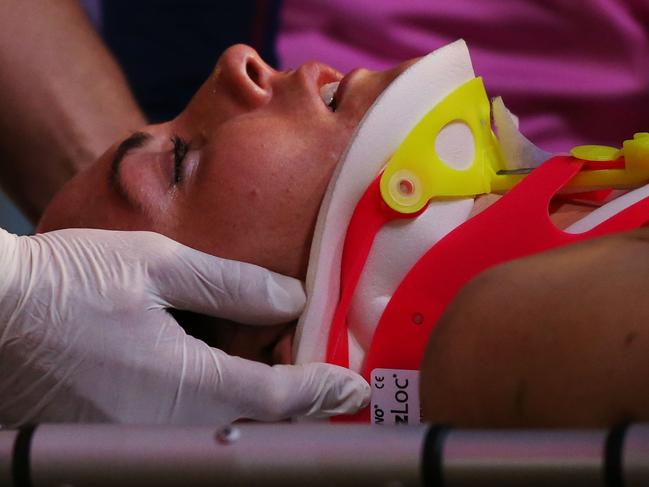
“In the US several studies have suggested higher rates with one finding that female athletes report triple the rate of sports related concussion compared to male athletes. The American Medical Society has recognised that female athletes sustain more concussions than their male counterparts and identify differences in head-neck mass and girth between women and men, as contributing factors.”
Concussion looms as one of the most important medical and legal issues in Australian sport, with a class action from AFL players who allege they have suffered long-term brain injury as a result of on-field concussions set to take place later this year and former NRL player James McManus suing the Newcastle Knights for allegedly “permitting or requiring” him to play, after multiple concussions.
MORE: McManus sues Knights over concussion
MORE: Platten backs players union initiative to enable concussion payouts
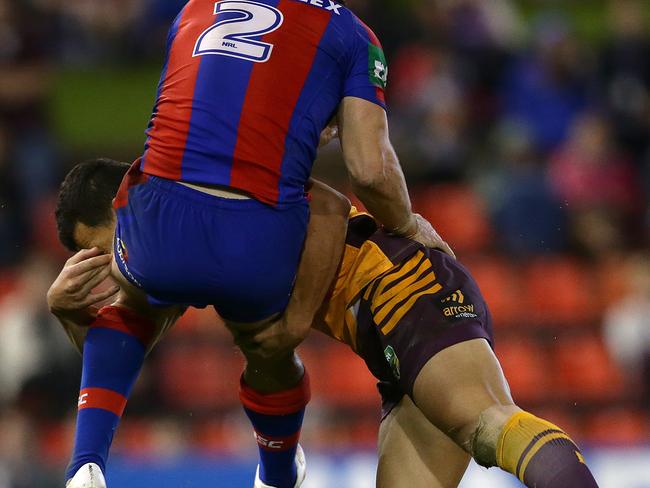
Former Brisbane Lions defender Justin Clarke, Olympic gold medallist and professional Rugby Sevens player Charlotte Caslick and AFLW players Meg Downie (Demons) and Amanda Farrugia (Greater Western Sydney Giants captain) are among ambassadors for Queensland University’s Brain Institute who have also spoken publicly about their personal concussion experiences or concerns.
The call for a national concussion strategy has been backed by director of neurosciences at Melbourne’s St Vincent’s Hospital Mark Cook, who said it would be “very useful” and draw attention to what had become recognised as a significant problem in sport.
“These are important first steps to improve the current situation, and reduce the incidence of serious brain injury,” he said.
Director of the Queensland Brain Institute Professor Pankaj Sah and New South Wales Rugby League Football General Manager Barrie-Jon Mather also supported the concept of a national concussion framework.
However, the AFL would not answer News Corp Australia questions asking if it supported a national approach, with a spokesman saying only that it had a long history of research and other work in the concussion area.
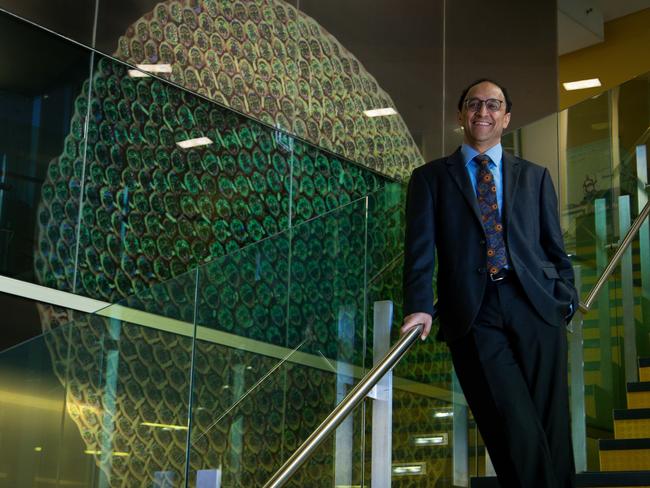
Asst. Prof Greenhow said individual sports and codes had traditionally taken responsibility for developing and managing their own concussion policies and research, and had typically focused on the highest level of the sport, leaving grassroots and junior sporting clubs — often dependent on volunteers — to fend for themselves.
“Sports governing bodies of themselves and on their own are ill-equipped to fully and properly regulate sports-related concussions as a high profile public health concern,” she said. “Each sport has looked after its own patch and there’s been a focus on the top tier of the hierarchy. I’m not saying there should be government control, what I am saying is there should be government participation in a more direct and proactive way.”
A national study several years ago of the number of concussion injuries presenting to hospital emergency departments showed motorsports had the highest level of concussions, followed by equestrian, then AFL, then all rugby codes and roller sports, Asst. Prof Greenhow said.
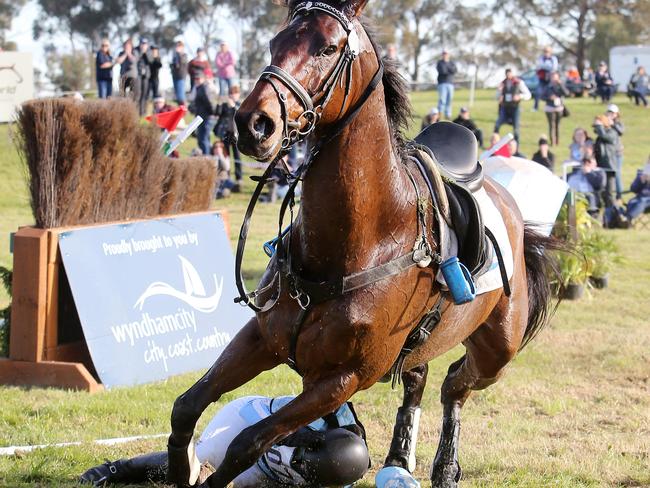
Executive officer of Brain Injury Australia Nick Rushworth said the link between concussion and long-term brain injury was “now undeniable”, and research showed up to 60 per cent of people who suffered a traumatic brain injury experienced mental health problems.
Despite this, there was currently a “radical variance” in the way concussions were assessed and managed throughout Australia, he said.
“From a consumer advocacy standpoint, navigating the shoals of the various, often competing concussion management regimes, would be a nightmare not just for the individuals involved who experienced concussion but for their families,” Mr Rushworth said.
Professor Sah said with the exponential growth of girls and women playing footy the number of on-field concussions across the country every weekend could realistically be expected to double in the near future.
“Given women’s football is really just starting, now is the time to think about it (creating a national regulatory body),” Professor Sah said.
“We should not be inhibiting people from playing sport but having a management strategy.”
The official AFLW 2017/2018 Injury report reveals there were 14 concussions in the inaugural 2017 season and 16 this year.
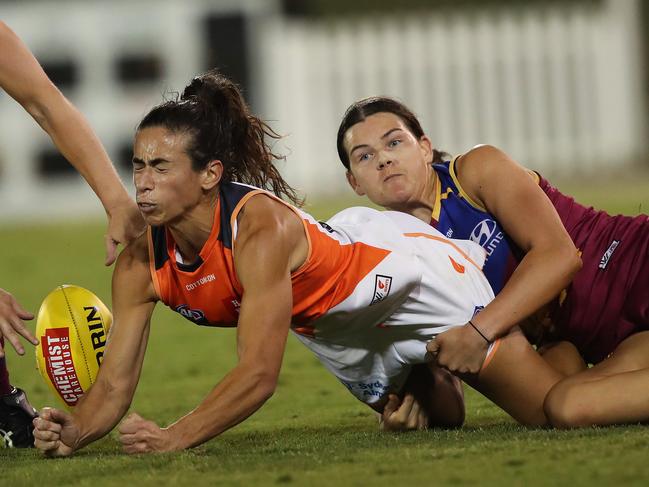
Sports Australia has refused to say if it will consider setting up a national regulatory body, instead noting it and the Australian Institute of Sport had “taken a leadership role in the important area of concussion in sport, including the evidence-based development of guidelines, education, resources and tools”.
Asst. Prof Greenhow said concussion resources developed by Sports Australia were helpful and “a really good start”, but did not go far enough.
“There’s more capacity for government to get involved,” she said.
“At the moment each of the sports are doing their own thing; there is no oversight.”
Sports Australia’s September 2018 Concussion in Sport position statement — supported by the Australian Institute of Sport, Australian Medical Association, Australasian College of Sport and Exercise Physicians and Sports Medicine Australia — says concussion affects athletes at all levels of sport, “from the part-time recreational athlete, to the full-time professional”.
It says while “there is concern about potential long-term consequences of concussion” and “some association between a history of multiple concussions and cognitive deficits later on in life”, the link between dementia-causing chronic traumatic encephalopathy (CTE) “remains tenuous”.
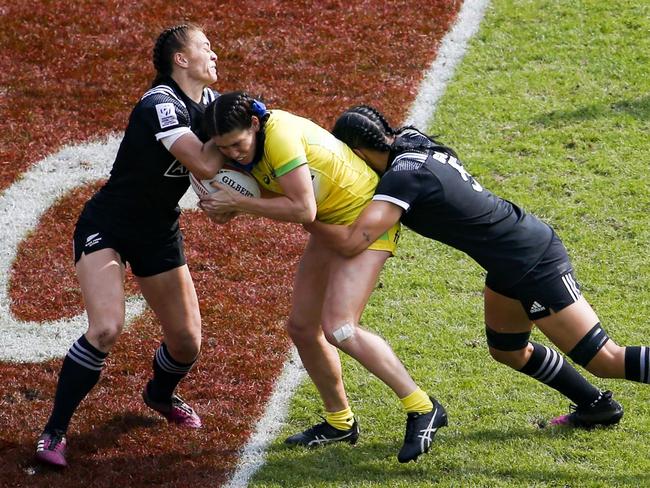
A survey of more than 2000 retired American professional football players found that those with a history of multiple concussions were three times more likely to have been diagnosed with clinical depression.
Another US medical study showed a history of concussion was associated with more than a three-fold increased risk of depression in adolescents.
And preliminary findings from the Murdoch Children’s Research Institute study show that for children whose concussion symptoms do not resolve in two or three months, mental health type problems such as anxiety and depression were the main ongoing issues.
“We now think a multi-modal approach, with a physiotherapist and psychologist, is better. We’ve had really good outcomes (from the pilot study). We start seeing the children at four weeks if they are still symptomatic (then) we see them for two months, once a week. The kids we’ve seen have really improved … It’s good for families to know that there are ways to work on these problems and that it needs to happen early, not at six months, it needs to happen at one month,” Prof. Anderson said.
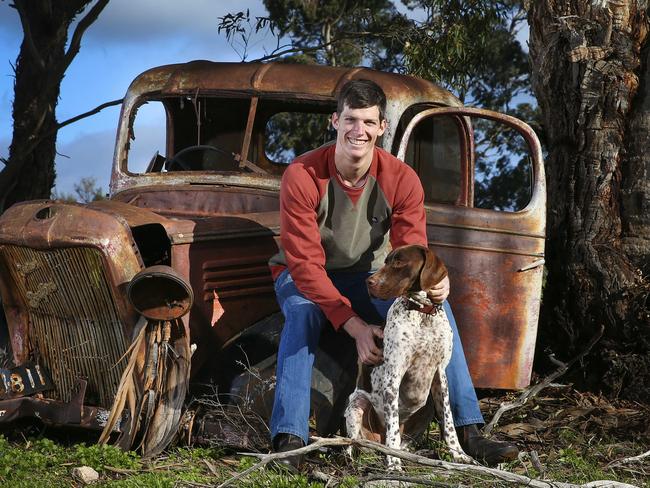
By far the majority of children did not experience brain injury, mental illness or other problems as a result of concussion, with more than 90 per cent recovering quickly and completely, she stressed.
And most childhood concussions were not sports-related but rather results of everyday falls and knocks through activity and playing.
“The studies which we’ve done, and others, show that of the kids that present to hospital — so the ones in the more severe group — at two weeks there’s about 30 per cent of them who will still have some symptoms and that really declines to less than five per cent at three months,” Prof. Anderson said.
It was not known what caused the small percentage of children who did take a long time to recover from concussion to sometimes develop anxiety or depression, but it was possible it was because of environmental reasons such as difficulty adjusting to the limitations which flowed from concussion symptoms, as well as physiological reasons, Prof. Anderson said.
Having a pre-existing mental health problem could also make children more prone to anxiety or depression post-concussion, as could having parents who were openly anxious about the child’s concussion.
“There can be multiple reasons for it,” she said.
The Murdoch had recently worked with the AFL to develop a free app called Head Check which was now available in the app store and could help medics, coaches, sports volunteers, parents and others assess a child’s concussion symptoms, and effectively manage their condition, she said.
The app had been downloaded 21,000 times in just a few months, Prof. Anderson said.


